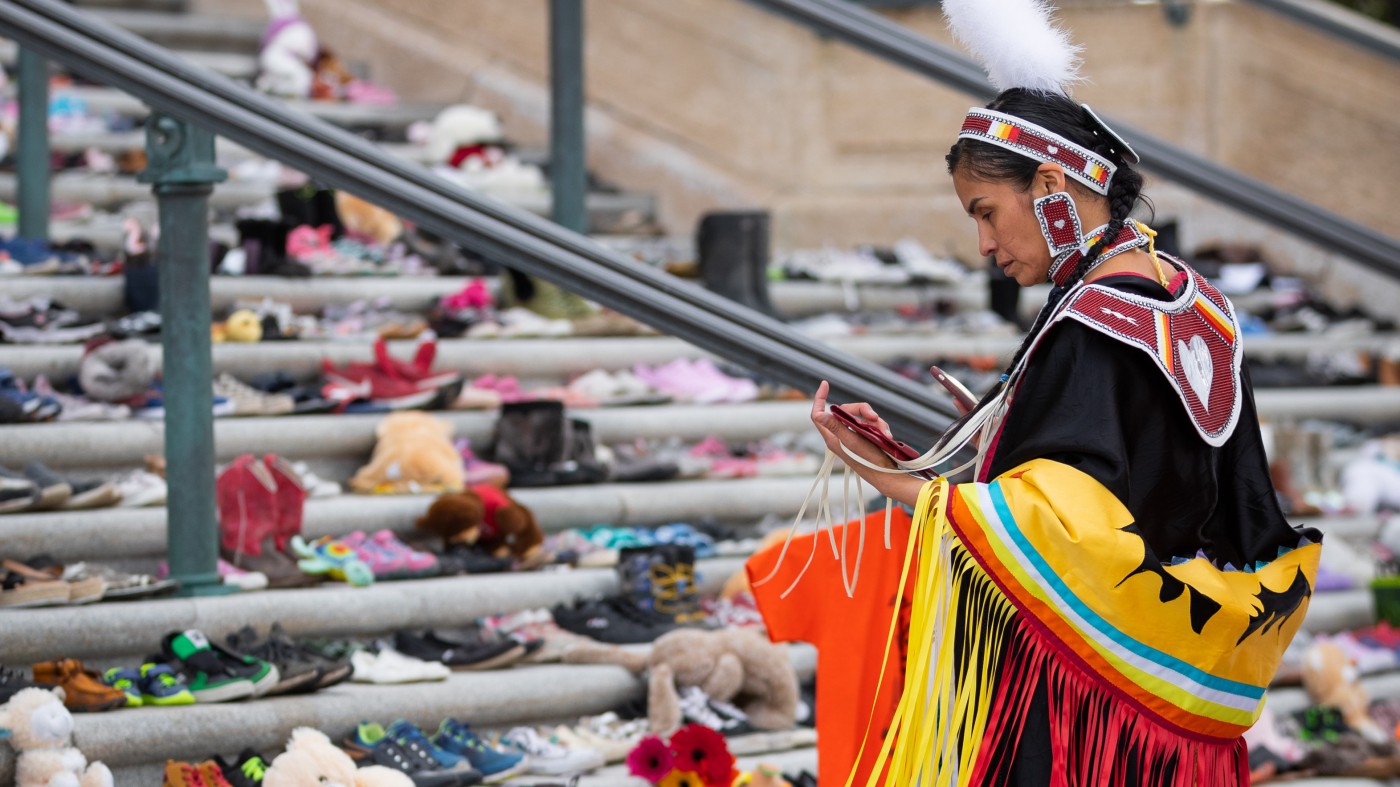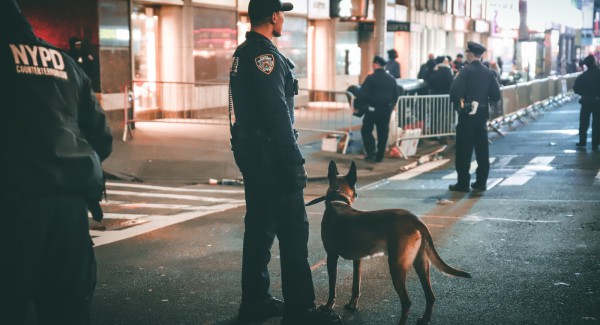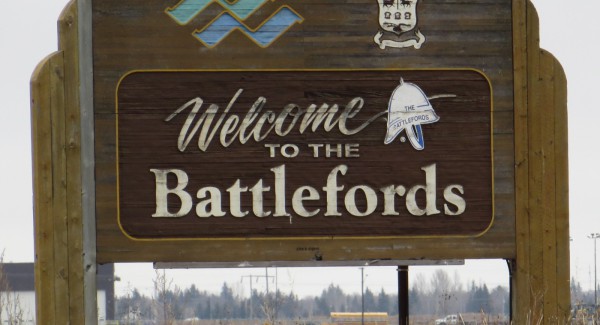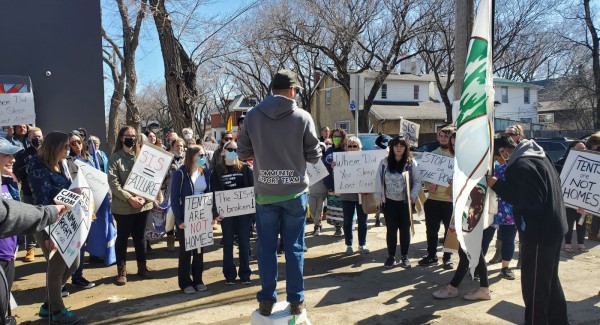An open letter to Scott Moe

In 2021, after the remains of 215 Indigenous children were found near what was once Canada’s largest residential school, mourners covered the steps of the Saskatchewan Legislature in children’s shoes. Tandem X Visuals/Unsplash.
Dear Premier Moe,
I work in Prince Albert as a legal aid lawyer, assisting our province’s most vulnerable people with their criminal charges. I travel regularly to the Big River First Nation (the locals refer to it as “Whitefish” ), just outside of your constituency. If you’ve never been, it’s a beautiful community with some of the loveliest people I have ever met. Cree culture is alive and well there, and the ceremonial grounds are often buzzing with people engaging in powwows, chicken dances, and sweats in the summer months. Wild horses roam the community, and many people work in agriculture in the surrounding area. The people are resourceful and kind. They have a healthy dislike of the area’s RCMP, who hand out traffic safety tickets more often than in any community I have ever worked in.
I’ve had some bad luck with my driving in the past couple of weeks. One day, I hit a coyote on my way to the office in Prince Albert. I pulled over and another man stopped to check on me and asked if I was OK. I said I was, but that the coyote wasn’t – he laughed and said, “Oh yeah, he’s dead as hell!” We shared a laugh and he gave me some advice on making a claim with Saskatchewan Government Insurance (SGI). Just two days later, I hit the ditch on the grid roads outside of Whitefish. A man stopped and asked if I was OK, then made some calls for me. About 15 minutes later, a father-son duo pulled my car out of the ditch and then refused my offer of cash for their help.
I had a little more hope and felt a bit better about the state of Saskatchewan after those encounters.
These kind people – rural white folks – are not the people I interact with very much in my life, where I split my time between my home in Saskatoon and my job that takes me to PA and Whitefish. To be frank, I don’t share the political views of your rural base. I have watched with frustration as policy in this province has tilted increasingly in their favour to the detriment of those living in poverty in our cities, towns, and Indigenous communities. More likely than not, I would not have much in common with these Good Samaritans and would not share their political views. But I did think of you after both of these incidents, because you often point to the generosity and helpful attitude of Saskatchewan people. I was extremely grateful for their help and couldn’t agree with you more that we have some great people here. I had a little more hope and felt a bit better about the state of Saskatchewan after those encounters.
This morning, I was reading a news article about the cycle of addiction in which many inmates are caught. They’re often released from custody and sent back to their lives, where the things that got them in trouble in the first place haven’t changed – they still live in poverty, have suffered unimaginable trauma, and use addictions to try to cope with their predicament. I see more people sleeping on the streets of Saskatoon and PA than I ever have before, and it makes me both furious and sad. I thought of my friend Cory Cardinal and how he was released from the Saskatoon Correctional Centre in the spring of 2021, only to die just months later of an overdose in the doorway of a building. He was a thorn in the side of Christine Tell, minister of corrections, policing, and public safety, and the rest of your government, but I want you to know he was an amazing person. He was a poet and an artist and a fierce advocate for inmates, Indigenous people, and people struggling with addictions. He came from difficult circumstances but still found beauty in the world and the energy to fight for something better. He used to phone me from the correctional centre to talk about the advocacy work he was doing. He had HIV and was terrified that he would catch COVID in custody. He was rightfully angry about how he and the other inmates were being treated, and frustrated by the plight of Indigenous people in this province. Despite his anger, we always had a laugh about something. I didn’t know him well, but he was one of those people who has a strength that you can sense after just a few minutes of talking with him.
But there’s the more insidious kind of racism, too, the kind that keeps Indigenous people in jail because they don’t have stable homes or money passed down through generations.
I started to cry this morning as I was reading the story because I thought that if it had been Cory in the driver’s seat when my car hit the ditch, I don’t believe he would have gotten the same generosity that I got. This province is deeply racist. There is the glaring, overt racism that is easy to condemn, although it is widespread – we saw it in the aftermath of the Gerald Stanley trial, when RCMP officers spewed vitriol online. I represent a client right now who is charged with assault because he punched a white man who called him a “drunken Indian” in the lineup for food at the shelter. The same client told me he’s had racist insults hurled at him countless times, and sometimes those insults have turned into violent attacks. He told me of hitchhiking in a vehicle with three white men. He remembers sitting in the back seat of the vehicle, and his next memory is waking up, badly beaten, left for dead in the ditch. I have heard the story of a 17-year-old kid from Whitefish who was found dead last winter in the town of Big River. Though the police never released a cause of death, the rumours say he got attacked by white men and was found frozen to death on the side of the highway, with his body showing signs of having been brutally beaten. As far as I know, no charges were laid.
But there’s the more insidious kind of racism, too, the kind that keeps Indigenous people in jail because they don’t have stable homes or money passed down through generations. We see it when the people of Whitefish are given traffic tickets for every minor infraction when their income from band assistance is $255 a month. Their community is over-policed and yet underserved by the officers who are tasked with keeping people safe. We see it when a young Indigenous mother’s kids are apprehended because she is struggling with addictions after suffering abuse at home as a child, only to face further abuse in her romantic relationships.
My client yesterday explained that he’s been sleeping outside in the -25 C winter, and drinking makes him feel the hunger and cold a little less. Can you blame him for that?
I can’t tell you how many of my clients come by their addictions honestly. Addiction issues permeate almost all of their families; it is truly intergenerational. They watched their parents drink or use drugs when they were little kids, they have watched their siblings and cousins die of suicide or overdoses, and they have lost their children to social services. So many of them became addicted after being prescribed painkillers after a car accident, or after having to undergo a caesarian section or other surgery. The legacy of residential schools and the cycle of poverty render addictions pretty intractable. My client yesterday explained that he’s been sleeping outside in the -25 C winter, and drinking makes him feel the hunger and cold a little less. Can you blame him for that?
Every day, I drive by signs with your face on them that tell me you’re standing up for a strong Saskatchewan. But who are you standing up for? I don’t pretend to know you, but I do know you have carried the burden of Steve Balog’s mother’s death for many years. I suspect you have faced your own struggles with alcohol. I can guess that you have had the gift of a stable and loving family and community to help you overcome these things. I can accept that your political philosophy doesn’t match up with mine, but I do wish your own experiences would cause you to bring a bit more compassion to your work.
I have represented hundreds of people in Saskatchewan. With the exception of a couple of people, I would say my clients are not bad people. In fact, most of them are good, kind people with families who, though sometimes imperfect, love them. They don’t commit crimes because they want to hurt someone but because of their circumstances, or because they’ve simply made mistakes – and often their offences, like breaking probation rules, don’t hurt anybody at all. You have made some of those mistakes yourself, but those mistakes do not define you. The obstacles for my clients getting out of a criminal lifestyle or overcoming their addictions are much greater than those you or I have ever faced.
You have pandered to your rural base with policy announcements around a rural crime strategy, but you have missed the mark.
You talk about fighting for fairness for Saskatchewan. I grew up in an upper-middle-class family in Saskatoon. I knew virtually no Indigenous people growing up. It has been extremely rewarding to work with my clients, who are overwhelmingly Indigenous, and it has given me a window into a world I would otherwise know nothing about. Now that I have gone to First Nations and Métis communities and met their people, including the substantial population living in the city, I know their social and economic situation isn’t because they’re inferior or lazy or weak, contrary to public opinion. Fairness in Saskatchewan will be elusive until you and your government recognize the systemic and structural racism that continues to hold Indigenous people down. You can’t arrest your way out of crime. If you really want to tackle crime, as I do, then you need to take concrete action to make sure everyone can live in dignity and safety. You have pandered to your rural base with policy announcements around a rural crime strategy, but you have missed the mark.
To me, a fair Saskatchewan would mean that Indigenous people, people struggling with addiction, and those living in poverty get a fair shake. It would mean that every person on social assistance has a safe and affordable home and enough money to pay for food. It would mean that children living in poverty aren’t going hungry. It would mean we wouldn’t have dozens of people sleeping on the street in downtown Saskatoon on a cold December night. It would mean that your government would finally fund the safe consumption sites in Saskatoon and Regina. It would mean providing programming and supports for inmates, and making sure they get a safe ride home when they’re released, lest they end up like Kimberly Squirrel. It would mean young Indigenous women don’t have to engage in sex work to meet their basic needs. It would mean that if an Indigenous person’s car winds up in the ditch, the good people of Saskatchewan would stop to help them without hesitation.
Whitefish is not far from your home. I invite you to join me for a day in court to meet my clients and see the human tragedy that plays out every day for many of them. You would also see their incredible hope and resilience. They deserve a government that treats them with respect.
Sincerely,
Julia Quigley
This is an edited version of a letter that was emailed to Saskatchewan premier Scott Moe’s office in December 2021.




